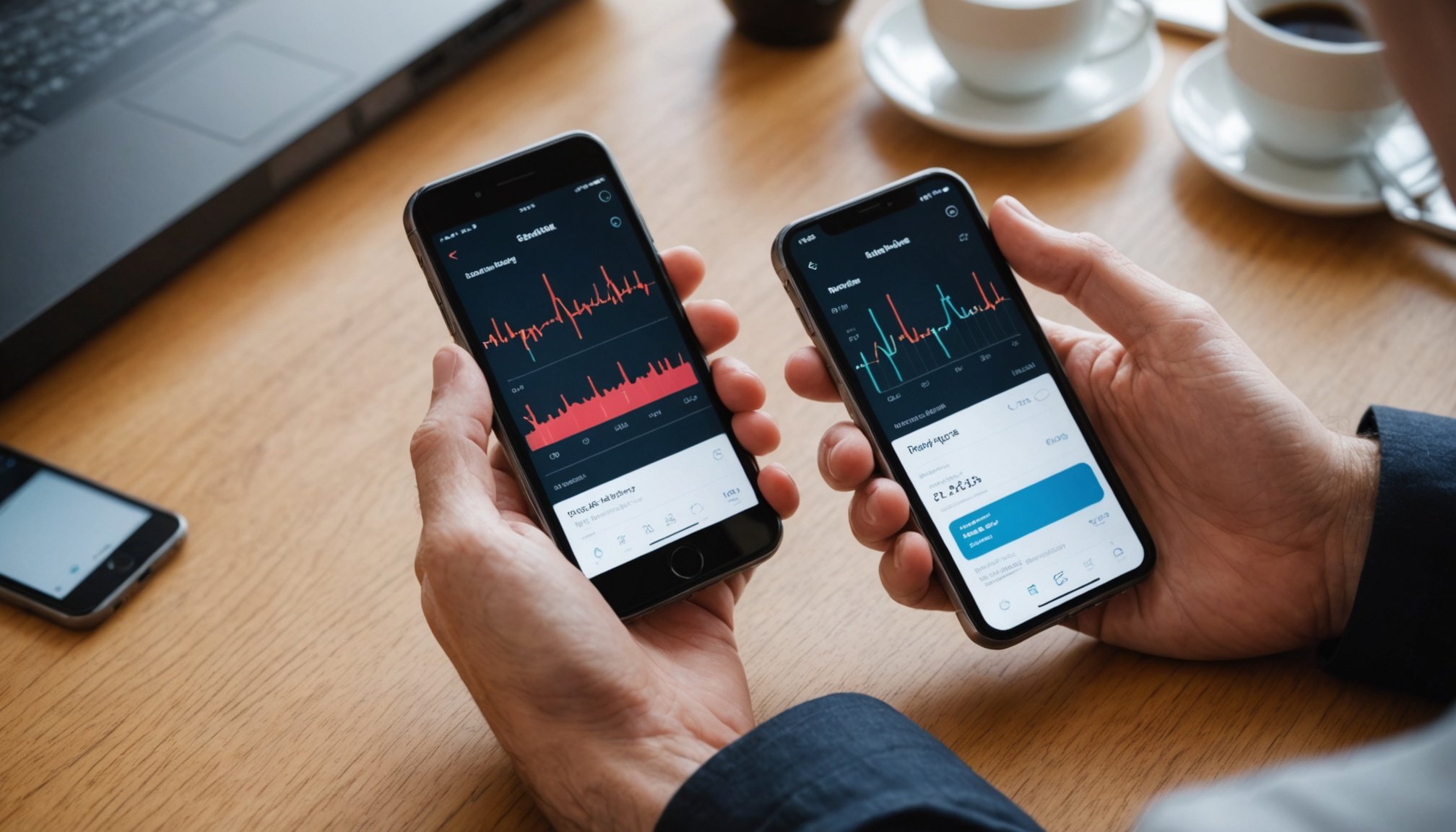Overview of Heart Rate Variability (HRV)
Heart Rate Variability (HRV) is a crucial metric in health monitoring. It reflects the time variation between individual heartbeats, providing insights into the autonomic nervous system’s function. High HRV indicates a healthy balance between the sympathetic and parasympathetic nervous systems, signifying good cardiovascular health. Conversely, low HRV can be a marker of stress, fatigue, or underlying health conditions.
The measurement of HRV can be accomplished through various tools, such as wearable devices that track heart rhythm patterns. These measurements depend on factors like age, physical fitness, and even time of day. Physiological indicators, such as respiratory rate, blood pressure, and emotional states, also have a significant influence on HRV values. Accurate analysis of HRV readings takes these variables into account for effective health assessment.
Also read : Unlocking Recovery: The Role of Occupational Therapy in Healing Traumatic Brain Injuries
Understanding HRV’s relevance extends to its role in stress and anxiety responses. When faced with stressors, an individual’s HRV can decrease, highlighting a shift in stress response mechanisms. By monitoring HRV, individuals can gauge their body’s response to stress and implement strategies to improve resilience. This makes HRV an invaluable tool in both clinical settings and personal health tracking.
Anxiety Management Techniques
Managing anxiety involves an array of coping strategies and therapeutic methods to alleviate distress. Traditional methods often include cognitive behavioural therapy (CBT), which focuses on altering negative thought patterns and behaviours. Relaxation techniques such as deep breathing exercises and progressive muscle relaxation are also commonly employed to ease symptoms.
This might interest you : Enhancing Chronic Kidney Disease Management: The Impact of Nutritional Strategies on Patient Outcomes
Integrating Biofeedback and Mindfulness
Biofeedback and mindfulness have emerged as innovative tools in anxiety management. Biofeedback uses electronic monitoring to help individuals gain awareness and control over physiological functions. This can be particularly effective for reducing anxiety by providing real-time data on the body’s stress responses. Mindfulness, on the other hand, encourages focusing on the present moment without judgment. Practising mindfulness can mitigate anxiety by fostering a sense of calm and emotional regulation.
Enhancing Techniques with HRV Tracking
Heart Rate Variability (HRV) tracking adds another layer of sophistication to managing anxiety. By monitoring HRV, individuals can gain insights into their autonomic nervous system’s functioning. A higher HRV is often associated with greater resilience to stress. Tracking HRV enables the fine-tuning of anxiety management approaches, allowing for more targeted and effective interventions. These data-driven insights empower individuals to integrate physiological feedback with traditional therapeutic methods, optimising their stress response and enhancing overall well-being.
Impact of Smartphone Apps on HRV Tracking
With the rise of smartphone apps, HRV tracking has become more accessible and user-friendly. Popular apps like Welltory and HRV4Training have transformed the way users engage with mobile health technology. These apps are designed to monitor heart rate variability (HRV), providing insights into stress and recovery levels. Users are empowered to take control of their health by tracking HRV effortlessly on their smartphones.
Effectiveness of HRV Tracking Apps
Empirical studies have highlighted the potential of smartphone apps in improving anxiety management. By analysing HRV data, apps can identify stress patterns, allowing users to make informed decisions about lifestyle changes. Such findings reinforce the relevance of mobile health technology in promoting well-being and underscore the potential benefits of integrating HRV tracking into daily routines.
User Experiences and Testimonials
Countless testimonials reflect positive user experiences with HRV tracking apps. Many users report that smartphone apps have enhanced their understanding of personal stress triggers and allowed them to better manage anxiety. The convenience of having access to HRV data at any time offers peace of mind and a sense of control over one’s health journey. Overall, the adoption of mobile health technology has led to increased awareness of the importance of HRV in maintaining mental health.
Benefits of Using Smartphone HRV Apps
Heart Rate Variability (HRV) apps have revolutionised personal health management by offering users unique insights into their emotional regulation. By utilising these apps, users can become more attuned to their body’s responses, promoting a deeper understanding of personal stress triggers. This enhancement in self-awareness is pivotal for emotional regulation, as it informs better coping strategies.
Enhancement in Self-Awareness
These apps often provide comprehensive features that monitor emotional states, making it easier for users to identify and understand their stressors. Real-time data plays a crucial role in offering instantaneous feedback, which empowers users to make informed decisions about their health.
Convenience and Accessibility
Smartphone technology has made HRV tracking remarkably accessible. The user-friendly interfaces of popular apps simplify the process, allowing anyone to navigate health management routines seamlessly. This portability ensures that users can track their health regularly and receive consistent feedback without the need for complex setups.
Integration with Other Health Metrics
Furthermore, numerous apps integrate HRV tracking with other vital health indicators. This holistic approach is invaluable for anxiety management, providing users with a comprehensive view of their health. The combined data facilitates personalised health recommendations, encouraging users to adopt practices that align with their personal health needs. This integration empowers individuals with actionable insights to enhance their well-being.
Limitations and Considerations of HRV Apps
Despite their popularity, HRV apps come with limitations that users should consider. One major concern is the potential inaccuracies in HRV measurements from these apps. While apps employ advanced algorithms, they often rely on phone sensors or basic wearables, which can compromise the data accuracy. Such devices may not match the precision of medical-grade equipment, leading to discrepancies in HRV readings.
Understanding the critiques of these apps also involves analyzing self-reported data. Many HRV apps require users to input their own health information, which can introduce biases or inaccuracies due to subjective interpretations. The reliability of self-reported data is crucial for effective tracking and meaningful insights, yet it remains a weak point of many current applications.
Moreover, user acceptance is integral to the success of HRV apps. Digital literacy plays a pivotal role in this acceptance, as users must navigate the features and interpret the results accurately. The ability to understand and trust these apps is tightly linked to one’s familiarity with digital platforms.
Ultimately, users should approach HRV apps with tempered expectations, balancing these limitations against the convenience and accessibility they offer. Striking this balance will aid in maintaining realistic insights into personal health analytics.
Recommendations for Effective HRV Tracking
Understanding how to select the best HRV monitoring app requires careful consideration of several key criteria. The app should offer precise accuracy in heart rate variability (HRV) metrics to ensure reliable data interpretation. User guidelines should highlight ease of use, cross-device compatibility, and comprehensive analytics. It’s crucial to pay attention to user reviews and potential app updates to keep your tracking consistent.
To effectively integrate HRV tracking into your daily routine, establish regular check-ins. Morning assessments can provide baseline readings, whereas evening reviews offer insight into daily changes, thereby fulfilling your HRV App Recommendations. Consistency is paramount, so setting reminders on your phone or in the app can help maintain routine adherence.
For those looking to use HRV tracking as a tool for anxiety management, seeking additional resources can be advantageous. Online forums, expert-reviewed articles, and practitioner’s seminars are great resources for learning best practices and deepening understanding. Educational videos or workshops explaining physiological impacts on HRV can bolster effective usage.
Furthermore, user guidelines highlight that customizing your tracking parameters to suit personal health goals enhances motivation and accuracy in results. Be proactive in updating app features and using available customer support to address any app inconsistencies or inaccuracies swiftly.











